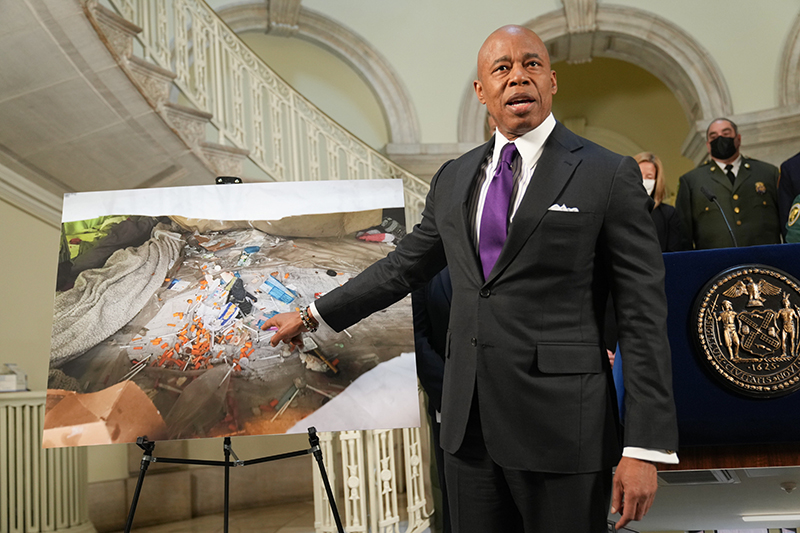Secondary Navigation
Mayor Adams Completes Initial Portion of Enhanced Effort to Connect New Yorkers Living on the Streets With Social Services, Clean Public Spaces
March 30, 2022
Video available at: https://www.youtube.com/watch?v=1JkNZShg70w
Multi-Agency Task Force Cleaned Over 200 Locations Across NYC, Effort Planned for Two Weeks Completed Ahead of Schedule
Yesterday Mayor Adams Attended Opening of Morris Avenue New Safe Haven Location In Bronx – Bringing Total Number of New Low Barrier Beds Up To 350
Next Portion of Task Force Work to Include Identification of New Encampments and Maintenance of Public Spaces
NEW YORK – New York City Mayor Eric Adams today announced the completion of the first portion of an enhanced effort to connect New Yorkers living on the streets and experiencing homelessness with social services, as well as the city's efforts to clean up public spaces across the five boroughs. Originally planned as a two-week intensive effort that began with initial cleanups on Friday, March 18, this first portion ends today, March 30 – two days ahead of schedule. The teams, comprised of members from a multi-agency task force, visited 244 locations and completed cleanup of 239 encampments across New York City – offering assistance to New Yorkers living on the street, while upholding the city's Sanitation Code and maintaining cleanliness in public spaces. On Meeker Avenue in Brooklyn alone, task force members cleaned 10 separate locations – recovering 537 used needles, potentially for illegal drug use, across four of those locations.
Yesterday, Mayor Adams opened the Morris Avenue Safe Haven site in the Bronx, with 80 beds available to New Yorkers experiencing homelessness – part of the 500 additional low-barrier beds announced in his Subway Safety Plan, 350 of which will be open to serve New Yorkers this week.
"We are engaged in a multi-agency mission to get people the help they need and keep our public spaces clean, and we are getting that work done ahead of schedule," said Mayor Adams. "As the mayor of all New Yorkers, I am not going to abandon my neighbors to face suffering, freezing, violence, or death – especially when the city has the power to help. Building trust takes time, but this is the right thing to do because there is no freedom or dignity in living in a cardboard box under an overpass. We have the resources and a moral obligation to help our fellow New Yorkers, and not just walk by them and pretend it is someone else's problem."
"I want to thank the men and women, and especially the frontline workers, of the agencies on this task force for their tireless efforts to help our most vulnerable New Yorkers and keep our public space clean and available to all," said Deputy Mayor for Operations Meera Joshi. "The Adams administration is fully committed to this dual purpose, and this is just the beginning."
"The sentiments that, ‘there is a place for you' could not resonate more profoundly," said Deputy Mayor for Health and Human Services Anne Williams-Isom. "That is a message to every person on our streets today and one that our outreach workers carry with them in every interaction. Thank you to the mayor for his thoughtful leadership, thank you to every member of our outreach team working to connect with New Yorkers in need, and thank you to those who are at a place where they are willing and able to accept help. Today is not about clearing areas – it is about connecting people to supportive services that can categorically change their lives."
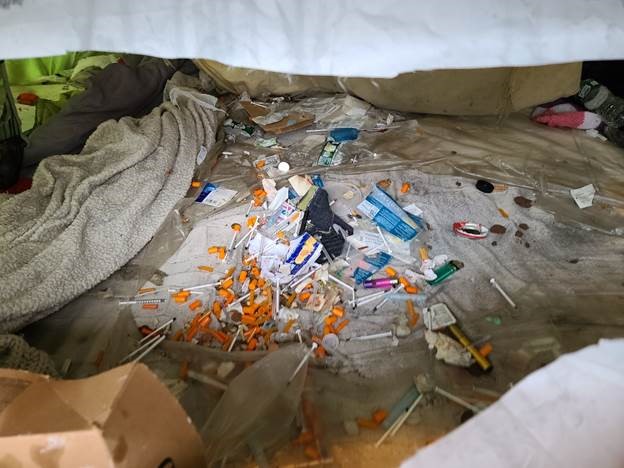
The first phase of the task force's effort – which concludes today, ahead of schedule –included initial visits to encampments across the city, as well as re-inspections of locations after the initial visits and a recanvass across the five boroughs to identify any new or remaining encampments. The task force conducted a total of 244 visits – and 239 of those sites have been cleaned.
The second phase of the task force's effort – which begins tomorrow, Thursday March 31 – will include an evaluation of recanvassing and scheduling of the next round of site visits. The task force will also return to the sites that remain active and have not yet been fully cleaned to complete that work. At some sites, teams visited and decided to delay cleaning to allow additional time needed by those living at those sites.
This multi-agency effort has been led by a task force that includes the New York City Department of Social Services (DSS), the New York City Department of Sanitation (DSNY), the New York City Parks Department, and the New York City Police Department (NYPD). For a typical visit, a team has gone to an encampment, offering to connect any person who appears to be living on the street with social services – including shelter, other housing options, and medical, mental, and substance abuse health care – simultaneously cleaning up the public space. Each visit is prefaced with a written notice 24 hours in advance, and NYPD officers have had their body-worn cameras on throughout each engagement.
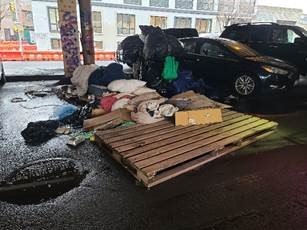
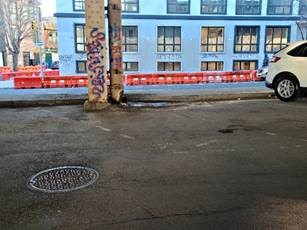
"I am proud of this interagency effort spearheaded by the mayor to clean encampments across the city in order to offer unsheltered New Yorkers the help they need and deserve," said DSS Commissioner Gary Jenkins. "At every cleaning, DHS outreach teams are there on the ground to connect our clients with services and help facilitate the connection to provide shelter, food, and support. It is critical that we provide services for our vulnerable neighbors who need our help – and thanks to this initiative, our city will become more equitable for all."
"Every New Yorker deserves better than to sleep on the street – we all know that, and yet for too long, city policy has left people behind," said DSNY Commissioner Edward Grayson. "This administration is working to get our neighbors the help and housing they need, and DSNY has an important role in that. It's a job we take seriously and are ready to see through to the end."
"Homelessness is not a crime; it's a human issue and one that we must address with kindness, compassion, and most importantly, humanity," said NYC Parks Commissioner Sue Donoghue. "Our staff engage with individuals experiencing homelessness on a daily basis across our parks system, and we strive to be mindful and intentional that these interactions are not dehumanizing but supportive and solution-oriented. The work we do in conjunction with our partners is designed to offer resources and aid those in need the best way we know how. The goal has always been and will continue to be to treat people in a dignified manner that promotes improved quality of life for all New Yorkers."
"No person, no matter what the circumstances, should ever be forced to live on the street," said NYPD Commissioner Keechant L. Sewell. "Homelessness has many root causes, but our response must be clear: When we see a problem, we must do everything we can do to fix it. To that end, in close partnership with the mayor's office, the Department of Homeless Services, the Department of Social Services, the Department of Sanitation, and the Parks Department, we are working to improve the quality of life of all New Yorkers – especially our city's most vulnerable populations."
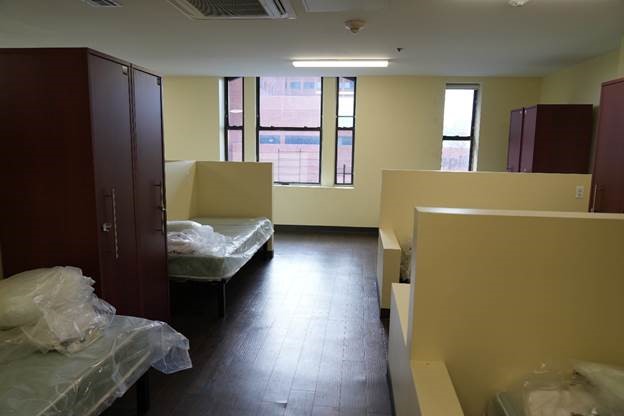
Media Contact
pressoffice@cityhall.nyc.gov
(212) 788-2958


